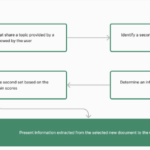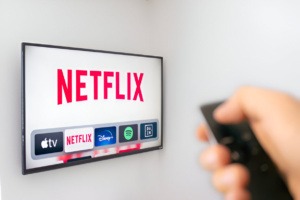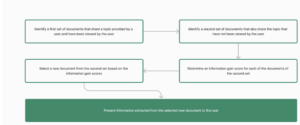It seems Google has finally put its money where its mouth is. After announcing earlier this year that the company would no longer accept ads promoting sexually explicit content, Google began enforcing the new policy this week according to reports. If you’re in the adult entertainment industry, you likely received a warning from Google a few weeks ago letting you know your ads would soon be shut down. Even so, some in the industry were apparently caught off guard by Google actually following through. The CEO of one adult media network said he was surprised by the change given Google had allowed such ads for over a decade. Whether the policy change surprises you or not, the days of porn ads appearing alongside your Google search results are over.
Google Announces Ban on Porn Ads in March
Google announced back in March that they would be banning pornographic ads from their AdWords network. They sent notices to advertisers in early June, letting them know the new policy would go into effect in the coming weeks. Now, it appears Google is enforcing this policy change and adult ads are being removed.
The policy change impacts advertisers promoting hardcore pornography, graphic sexual acts (like masturbation), or anything involving genital, anal or oral sex. Google says they made this decision to “continually improve users’ experiences with AdWords.” While the policy was announced months ago, some in the adult ad industry were still caught off guard. Theo Sapoutzis, CEO of AVN Media Network, said he was “surprised” by the change given he was one of AdWords’ first advertisers back in 2002.
Google’s policy update shouldn’t really come as a shock though. The company has been making changes to clean up the AdWords network and improve the user experience. They’ve banned other types of ads like those for cryptocurrencies, binary options, and payday loans. Google also announced limits on ads for addiction treatment centers and bail bonds services. The company likely sees porn ads in the same light – something that could negatively impact the user experience.
Banning porn ads is a big deal given how lucrative they can be. Some estimates put the adult entertainment industry’s ad spend at over $1 billion per year. While Google’s policy change may impact some adult ad networks and publishers, advertisers can still promote adult products and services, as long as ads don’t contain graphic imagery or video and adhere to Google’s other policies.
The bottom line is that Google wants to make AdWords more brand-friendly and avoid offending users or advertisers. Prohibiting porn ads is meant to achieve that goal and create a better overall experience for those engaging with ads. The change may be an unwelcome one for some in the adult ad industry, but Google’s focus remains on the mainstream.
Notifications Sent to Advertisers in June About Upcoming Changes
Google made it very clear to advertisers back in March that they would be banning pornographic ads and enforcing this policy change in late June. They sent follow up notifications in early June reminding advertisers again that their ads would be coming down in the upcoming weeks. Despite this, some in the adult industry are acting surprised.
Theo Sapoutzis, CEO of AVN Media Network, told CNBC he was caught off guard by Google now enforcing their policy, saying:
“I was caught by surprise. I was one of the very first advertisers for AdWords back in 2002. It’s something that’s been [untouched] for 12 years, so you don’t expect change is going to start happening.”
However, Google explicitly stated in their June notifications to advertisers:
“Beginning in the coming weeks, we’ll no longer accept ads that promote graphic depictions of sexual acts including, but not limited to, hardcore pornography; graphic sexual acts including sex acts such as masturbation; genital, anal, and oral sexual activity.”
They went on to say:
“When we make this change, Google will disapprove all ads and sites that are identified as being in violation of our revised policy. Our system identified your account as potentially affected by this policy change. We ask that you make any necessary changes to your ads and sites to comply so that your campaigns can continue to run.”
Google’s policy change and enforcement of banning porn ads really shouldn’t come as a surprise. They announced it months ago, and recently reminded advertisers the change was imminent. The writing has been on the wall, and Google is now following through to improve the experience for users.
The policy applies to all countries and affects search, display and video ads. While the change may be an inconvenience for some advertisers, Google aims to keep ads and sites appropriate and aligned with their policies. Compliant advertisers will need to make adjustments for their ads to continue running. Those unwilling or unable to do so will have their campaigns come to an end.
What the New AdWords Policy States
Google’s new policy clearly states that it will no longer accept ads promoting graphic sexual content. This includes hardcore pornography, graphic depictions of sexual acts like masturbation or any genital, anal or oral sexual activity.
Once the policy went into effect in late June, Google began disapproving any ads or sites that violated these rules. If your account was identified as potentially affected, Google asked you to make the necessary changes to comply so your campaigns could continue running.
What’s Considered Non-Compliant
According to the policy, prohibited content includes but isn’t limited to:
- Hardcore pornography
- Graphic sexual acts like masturbation
- Genital, anal or oral sexual activity
Any ads or sites promoting this type of sexually explicit content will be disapproved.
What’s Still Allowed
The policy does not prohibit advertising for all types of adult-oriented content or services. Some examples of content still allowed include:
- Sex education and advice
- Non-graphic descriptions or images of adult products/toys
- Mainstream media with sexual themes (e.g. R-rated movies)
- Dating services
Advertisers should use discretion and make sure any content complies with Google’s other policies like ensuring ads are family-friendly, avoiding deceptive claims, and including proper disclosures. But non-graphic sexual content and innuendo appear to still be permitted.
Surprise From the Industry
Despite Google announcing this policy change back in March and sending notices to advertisers in early June about upcoming enforcement, some in the adult industry were caught off guard. Theo Sapoutzis, CEO of AVN Media Network, said he was surprised given that adult ads had been allowed for over 12 years.
Google gave plenty of warning about this policy and its implications. While the change may have a major impact on parts of the adult industry, it shouldn’t have come as a total shock. The writing has been on the wall for months. Google is now following through with banning graphic sexual content from its ad network.
Reactions From the Adult Industry
The adult entertainment industry was caught off guard by Google’s policy enforcement, despite announcements made months ago about the impending changes.
Surprise and Disappointment
According to Theo Sapoutzis, CEO of AVN Media Network, “I was caught by surprise. I was one of the very first advertisers for AdWords back in 2002. It’s something that’s been [untouched] for 12 years, so you don’t expect change is going to start happening.” Given that Google explicitly notified advertisers of this policy change and its enforcement timeline, the shock seems misplaced. However, for companies that have relied heavily on AdWords for over a decade, the impact of this change is undoubtedly felt deeply.
Losing access to the powerful AdWords platform is a huge blow, as it had allowed adult entertainment brands to reach potential customers and drive traffic to their websites. The policy change effectively cuts them off from a major source of new leads and business.
Scrambling for Solutions
With AdWords no longer an option, adult entertainment companies are scrambling to find other ways to advertise their products and services. Some are shifting their focus to social media platforms though with more restrictive policies, their options there are limited. Others are exploring advertising partnerships with publishers and influencers to tap into their audiences.
Building up an email list and communicating directly with consumers is another approach, as is Search Engine Optimization to rank higher in organic search results. However, none of these strategies are likely to replace the lost volume and revenue from AdWords in the short term. The industry will have to adapt to this new challenge, getting creative with a mix of alternative marketing and advertising solutions to stay connected with their customer base.
Overall, while not entirely unexpected, Google’s policy enforcement came as an unpleasant surprise and disruption. The adult entertainment sector will need to pivot quickly to minimize the impact on their businesses. With AdWords no longer available as a marketing tool, companies are experimenting with other options to drive traffic and generate leads. It may take time to recover and build up new strategies, but necessity often breeds innovation.
Google Now Enforcing No Porn Ads Policy
Google is cracking down on pornographic ads in their ad network, AdWords. As CNBC reported, Google began enforcing their policy against adult ads in June, despite some advertisers being surprised by the change.
The Policy
Back in March, Google announced an update to their ad policies that would prohibit sexually explicit content and clarify guidelines on other adult content. The new rules apply to all countries and ad formats. Google said the changes were meant to improve user experience.
Once the policy went into effect in June, Google began reviewing ads and disapproving any that violated the new rules. Advertisers with non-compliant ads and websites were notified their campaigns would be shut down if changes weren’t made. Some in the adult ad industry were caught off guard, even though Google had announced the policy months before and sent additional warnings in early June.
Enforcement Begins
Google is now enforcing the anti-porn policy and shutting down violating ads and accounts. Theo Sapoutzis, CEO of adult ad network AVN Media Network, told CNBC he was “caught by surprise” by Google actually implementing the policy, despite the months of advance notice. His network and others are now scrambling to make changes to comply and avoid losing access to AdWords.
For Google, the policy change and enforcement are meant to improve the user experience and brand safety. Allowing explicit adult ads could damage Google’s brand and upset some users. Banning porn ads brings Google’s policies more in line with other major ad networks and platforms.
Advertisers now have to adjust to the new rules by modifying or removing ads and websites with sexually graphic content if they want to continue advertising on AdWords. Those unwilling or unable to make the changes will have to find alternative ad platforms to promote their adult offerings. After more than a decade of allowing such ads, Google AdWords is now closed for porn.


















